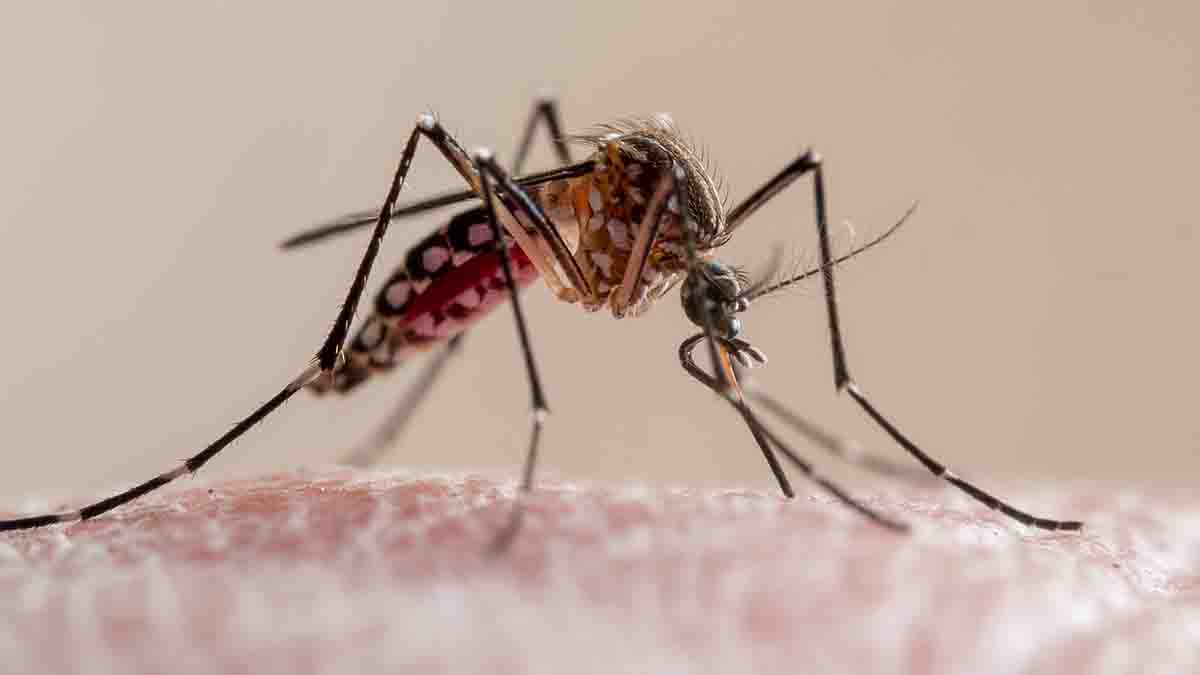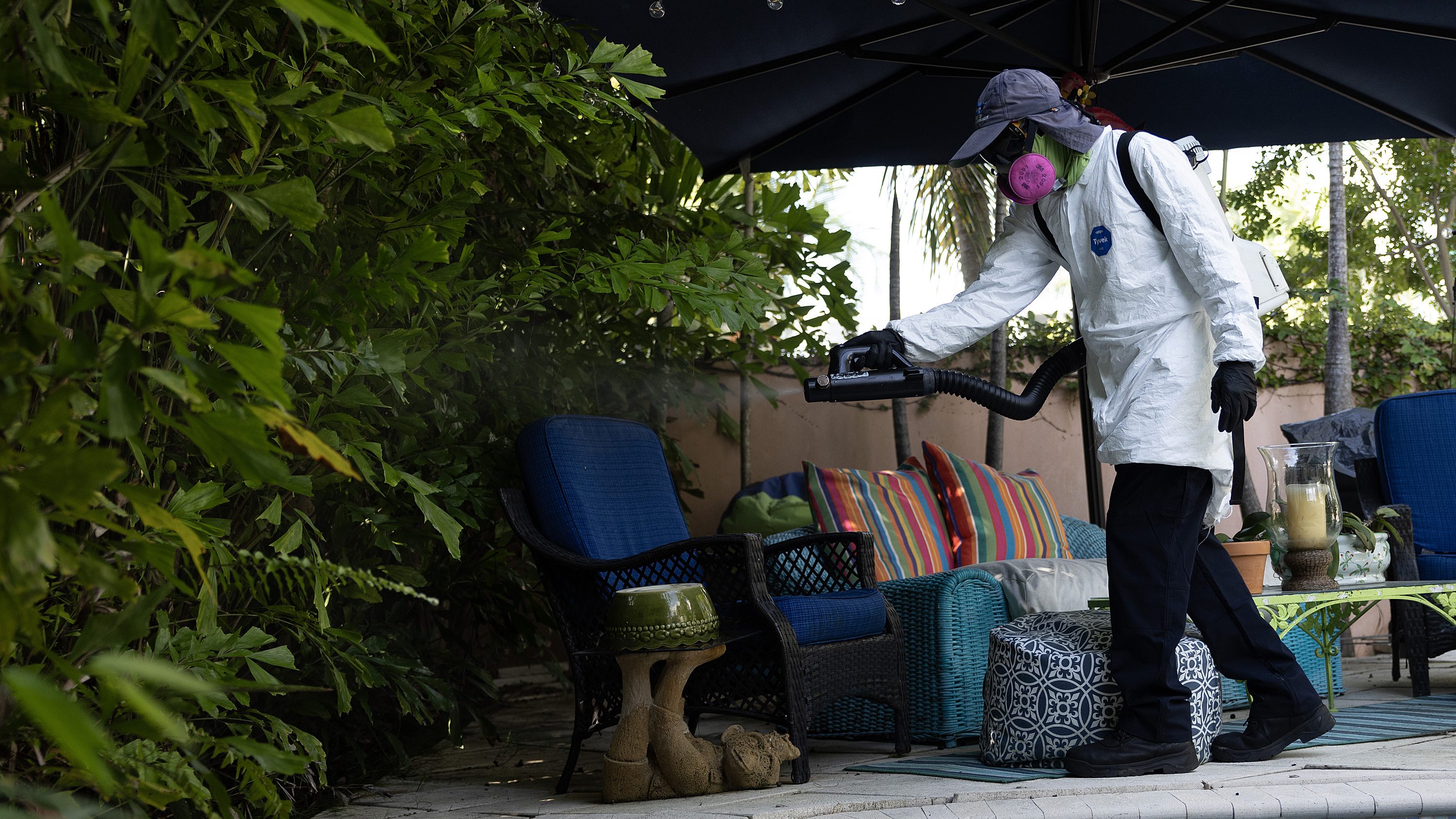A Maryland resident who lives in the D.C. area contracted malaria despite not having recently traveled out of the country or to states where malaria has been detected, state health officials said Friday.
The "locally acquired" case of malaria is the first of its kind in the state in decades, officials said.
“Malaria was once common in the United States, including in Maryland, but we have not seen a case in Maryland that was not related to travel in over 40 years,” Department of Health Sec. Laura Herrera Scott said in a statement. “We are taking this very seriously and will work with local and federal health officials to investigate this case.”
The patient is a resident of the D.C. area who went to a hospital because of a fever and sweating, Dr. David Blythe, director of the health department’s Infectious Disease Epidemiology and Outbreak Response Bureau, said on a call with reporters.
We're making it easier for you to find stories that matter with our new newsletter — The 4Front. Sign up here and get news that is important for you to your inbox.
The patient was hospitalized in the past week for a short time and was released, Blythe said. Their age, gender and exact location were not released.
The patient may have gotten malaria by being bitten by a mosquito that previously bit someone who had traveled, Blythe explained.
“One of the ways that this could happen is that a person who has traveled to somewhere where malaria is more common gets the infection and comes back to Maryland, a mosquito bites that person and then bites someone else who hasn’t traveled," he said.
NBC News reported in July that eight cases of locally acquired malaria had been found in the U.S. since May, with seven cases in Florida and one case in Texas. Those cases were the first to be acquired in the U.S. in 20 years.
The strain of malaria found in the Maryland patient is different from the strain found in patients in Florida and Texas, Blythe said.
Maryland health officials announced the malaria case one day after authorities reported that mosquitos tested positive for West Nile virus in two different locations in Laurel.
What is malaria?
Originally eliminated from the U.S. in the early 2000s, malaria is a mosquito-borne disease caused by a parasite. The disease cannot be transmitted from person to person and takes about two weeks from the time a person is infected with the parasite to cause any symptoms.
Some of the more common symptoms caused by malaria are fever, fatigue, headaches, and muscle aches. If untreated, the illness can quickly become life-threatening.
Although locally acquired malaria has not been recorded in the U.S. in two decades, local doctors such as Miriam Laufer, an infectious disease physician and malaria researcher at the University of Maryland, still treat the disease regularly, as many travelers return from international trips carrying the parasite.
"There are a few thousand cases of malaria every year in the United States. I take care of them in the hospital here. And all of those are usually travelers who have been to areas where there's malaria transmission," Laufer said.
Each year, about 2,000 people in the U.S. are treated for malaria. Most contract the illness while traveling to subtropical countries where mosquito-borne diseases are more widespread. Malaria kills about 620,000 people worldwide each year.
How to avoid getting malaria
The risk of acquiring mosquito-transmitted malaria remains very low, state officials said. To prevent mosquito bites or getting malaria while traveling, here’s what the state recommends:
- “Use insect repellent containing DEET on exposed skin
- If weather and heat allow, wear loose-fitting, long sleeved clothing
- Keep windows and doors closed or covered with screens to keep mosquitoes out of your house
- Empty standing water at least once a week to prevent mosquitoes from laying eggs
- Repair broken screening on windows, doors, porches, and patios
- Before you travel, learn about the health risks and precautions for malaria and other diseases for your destination
- If you are planning to travel abroad, check with your health care provider for current recommendations on prescription medications to prevent malaria
- If you have traveled to an area where malaria transmission occurs more often, and you develop fever, chills, headache, body aches, and fatigue, seek urgent medical care and tell your health care provider that you have traveled”
While the risk of malaria is low, anyone with a fever without a clear explanation may want to see a doctor, Blythe said.
Go here for info on malaria from Maryland’s health department and the U.S. Centers for Disease Control and Prevention.
Stay with NBC Washington for more details on this developing story.




